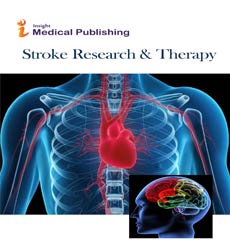Abstract
Socio-Demographic Evaluation of Stroke Survivors Managed at a Physiotherapy Department in a Tertiary Teaching Hospital in Nigeria
Stroke has been reported as a major cause of death and neurological disability in adults and imposes a heavy emotional and financial burden on the family of the patient and society. Several risk factors have been associated with the occurrence of stroke. This research was aimed at evaluating the pattern of stroke among survivors managed at the physiotherapy department of a tertiary teaching hospital in Nigeria. The socio-demographic and comorbid risk factors associated with stroke were evaluated.
A total of 100 case files of stroke survivors were reviewed (2016-2020). The sociodemographic data and the comorbid risk factors associated with stroke were retrieved and analyzed.
Ischemic stroke (81%) and left hemispheric stroke were more prevalent than right hemispheric and brainstem strokes. The research identified a large percentage of stroke cases to be diagnosed in 2020. Female clients between the ages of 51-60 years, married and had less than five children represented a greater percentage of stroke survivors. Hypertension (80%), diabetes mellitus (39%), and high blood cholesterol (14%) were associated with ischemic stroke. The most recorded occupation group was traders (37%), followed by civil servants (11%).
The outcome of the study shows that hypertension, diabetes mellitus, and high blood cholesterol were the most prevalent co-morbid risk factors. It is advised that healthcare practitioners educate patients on the modifiable risk factors identified in this study.
Author(s):
Uchenna Prosper Okonkwo*, Ebubechukwu Maryrita Anyoke, Uzoamaka Nwakaego Akobundu, Kenneth Umezulike Ani, Emeka Sylvester Igwe, Samuel Chidile Mounwe, Ifeoma Blessing Nwosu, Chiamaka and Ezinne Chika Ekediegwu
Abstract | Full-Text | PDF
Share this

Google scholar citation report
Citations : 63
Stroke Research & Therapy received 63 citations as per google scholar report
Abstracted/Indexed in
- Google Scholar
- Secret Search Engine Labs
Open Access Journals
- Aquaculture & Veterinary Science
- Chemistry & Chemical Sciences
- Clinical Sciences
- Engineering
- General Science
- Genetics & Molecular Biology
- Health Care & Nursing
- Immunology & Microbiology
- Materials Science
- Mathematics & Physics
- Medical Sciences
- Neurology & Psychiatry
- Oncology & Cancer Science
- Pharmaceutical Sciences

